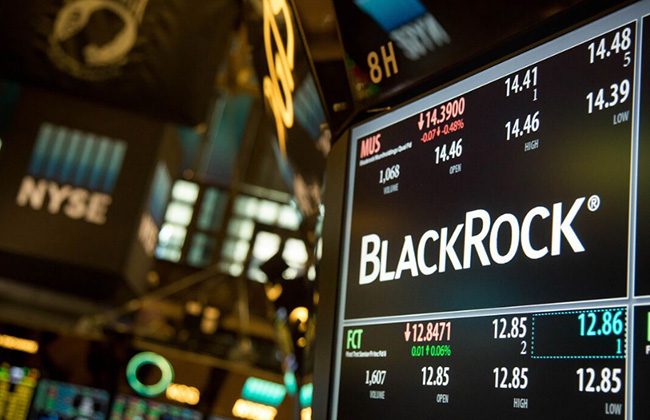In 2023, there’s a catch to climbing that ladder into the industrialized world. As the board of directors of the club of the wealthy points out, the classic ladder of development, industrialization itself, has become rickety and ever more dangerous. After all, it requires energy traditionally supplied by fossil fuels, now known to radically heat up the planet and endanger the very survival of humanity. Today, countries aspiring to join the charmed circle of the wealthy can no longer hope to climb that ladder in any usual fashion, thanks in part to the carbon-neutrality pledges virtually all nations made as part of the Paris climate accord, writes John Feffer, the director of Foreign Policy In Focus, where this article originally appeared.
The Global South is divided on how to respond. For instance, as the world’s second-largest consumer of coal and third-largest consumer of oil, India wants to grow in the old-fashioned fossil-fuelized way, becoming the last one up that ladder, even as its rungs are disintegrating. Other countries, like renewables-reliant Uruguay and carbon-neutral Suriname, are exploring more sustainable paths to progress.
Either way, with global temperatures setting ever more extreme records and inequality worsening, poor countries face their last shot at following South Korea and Qatar into the ranks of the “developed” world. They may fail, along with the rest of us on this overheating planet, or perhaps one or two might get lucky and make it into the club. However, with some clever negotiating, judicious leveraging of resources, and a lot of solidarity, it’s just possible that they could team up to rewrite the very rules of the global economy and achieve a measure of prosperity for all.
The boosters of globalization point to a steady decline of inequality among nations between 1980 and 2020, largely because of the explosive economic growth of China and other Asian countries like Vietnam. However, those boosters often fail to mention two important facts: in 2020, such inequality was still roughly the same as it had been in 1900 when colonialism was in full swing. Meanwhile, in recent decades, inequality within countries has skyrocketed. Since 1995, in fact, the top 1% of the wealthiest among us have accumulated 20 times that of the bottom 50%.
The Covid pandemic only made matters worse. According to one estimate, it threw 90 million people into extreme poverty, while increasing the wealth of billionaires more rapidly in just two pandemic years than in the previous 23 years combined.
And mind you, the super-rich no longer reside only in the prosperous “north.” China and India now have the most billionaires after the United States. The consolidation of obscene wealth alongside abject poverty is one reason inequality has risen more rapidly within countries than between them.
But something else strange is happening. In addition to making the ladder of fossil-fuelized industrialization more difficult to climb, climate change has been pushing the architects of the global economy to rethink their animus toward state intervention. Accelerating as it is due to a fundamentalist faith in markets, climate change may also be delivering the coup de grace to neoliberalism.
From 1751 to 2021, the United States was responsible for fully one-quarter of all carbon emissions, with the members of the European Union in second place at 22% (followed by China, India, Japan, Russia, and other major powers). On the other hand, Africa, Latin America, Southeast Asia, and Oceania have collectively contributed only a tiny fraction of those emissions over time. Of the existing carbon budget — the amount the world can emit without crossing the 1.5C degree red line set by the Paris climate accord — only 250 gigatons remain. That’s approximately what China alone had emitted by 2021 while muscling its way into the clubhouse of the rich and powerful.
The Global South, which bears little responsibility for the climate mess the planet faces, doesn’t have the necessary billions of dollars to devote to “clean energy transitions.” So, because climate change knows no borders, in 2010, the richer countries promised to contribute $100 billion a year to fund “mitigation” (emissions reductions) in the Global South. However, that promise has proved to be — the perfect image for our overheated moment – mostly hot air. Ten years later, according to Oxfam, the wealthy nations have managed to mobilize at most $25 billion in real assistance annually.
Last year, rich countries made another pledge of money, this time to a “loss and damage fund” to compensate poor nations for the ongoing impacts of climate change. Those funds, however, have yet to come into existence, while the desperately poor countries of the Global South await the next round of climate negotiations — in oil-rich Dubai of all places — to find out how much is involved, from whom, and for whom.
The fossil-fuel-free future the Global North is touting depends on critical materials like lithium, cobalt, and rare earth elements to build electric batteries, solar panels, and windmills. Most of these essential assets are located in the south. In one of those ironies of history, the economic development of the north once again depends significantly on what lies beneath the ground (and the oceans) south of the equator. In this brave new world of “green colonialism,” the north is maneuvering to grab such needed resources at the lowest price possible in part by perpetuating for the poor the very neoliberal model of “less government” that it’s begun to abandon itself.
According to policymakers in Brussels and Washington, the “clean energy” transition shouldn’t be held hostage by China, which mines and processes many of its critical minerals (producing 60% and processing 85% of all rare earth elements). China might one day decide to shut down the supply chain of such critical minerals, a foreshadowing of which took place this summer when Beijing imposed export controls on gallium and germanium in response to a Dutch ban on certain high-tech exports to China. The Chinese leadership will undoubtedly continue out-negotiating the West to gain privileged access to what it needs for its own high-tech industries.
A new “mineral rush” is underway. The European Union (EU) is now debating a “Critical Raw Materials Act” meant to reduce dependency on Chinese inputs through more mining closer to home, from Sweden to Serbia, not to speak of more “urban mining” (that is, recycling materials from used batteries and old solar panels).
Europe is also locking in deals with mineral-rich countries in the Global South. The EU typically negotiated a trade agreement with Chile that ensures EU access to that country’s lithium supplies, while making it more difficult for Chile’s government to supply its own manufacturers with cheaper inputs.
Such an effort to “secure supply chains,” while a blow to China, represents a possible boon for the Global South. A country like Chile, which commands so much of the lithium market, can theoretically negotiate more than just a good price for its product. It could leverage its mineral riches to acquire valuable technology, intellectual property, or greater control over the overall supply chain. Collectively, those mineral suppliers could also take a page from the playbook of the oil producers. Indonesia, for instance, has already floated the idea of a nickel cartel.
Rather than building a different ladder to climb into prosperity, the countries of the Global South could take the unprecedented challenge of human-induced climate change as an opportunity to rewrite the rules of the global economy. Instead of dreaming of consuming at the same rate as the Global North — inconceivable given the planet’s shrinking resource base — the Global South could use its mineral leverage to effectively lessen inequality on a planet-wide basis. In practice, that would mean forcing the North’s middle class to begin trimming its consumption by reducing the supply of fossil-fuel energy to the addicted.
The global economy is essentially on a downward debt spiral for the poor and an upward consumption spiral for the rich. In short, it’s a rigged game. The solution is not to usher a few lucky countries into the world of unsustainable excess, which would just be a new version of green colonialism.
Rather, it’s time to flip the game upside down and end that very green colonialism by requiring a southernization of the north — forcing the latter to reduce its consumption of energy and other resources to meet that of the Global South. The inequality of industrialization got us into this crisis. Addressing that inequality is the only way out, John Feffer concludes.

BlackRock Inc. and other money managers spent years rolling out sustainable funds, seeking to capitalize on surging interest in ESG (Environmental, Social, Governance funds) investing. Now they’re abandoning an increasing number of those products in the US amid political backlash and investor scrutiny, writes Bloomberg.
State Street Corp., Columbia Threadneedle Investments, Janus Henderson Group Plc and Hartford Funds Management Group Inc., among others, unwound more than two dozen ESG funds this year, according to data from Morningstar Inc.
While the US had 656 sustainable funds as of June 30, according to Morningstar data, the number of liquidations is increasing from prior years. More US sustainable funds have closed in 2023 than the prior three years combined, the data show. Investors pulled more money from the funds in the first half of the year than they put into them.
“We have definitely seen demand drop off in 2022 and 2023,” Alyssa Stankiewicz, associate director for sustainability research at Morningstar, said in a phone interview.
The closings underscore shifting fortunes for sustainable investing as returns disappoint investors and anti-ESG rhetoric persists. Some sustainable funds fared poorly last year because they were weighted toward growth strategies that underperformed in 2022, while others struggled to gather assets, Stankiewicz said.
Money managers are now “cleaning up the shelves” by closing products that didn’t attract interest
Money poured into sustainable-investing products in 2020 and 2021, when fund managers debuted more ESG funds or added “ESG” or “sustainable” to the names of existing funds.
Republican officials responded with attacks on ESG funds, arguing the products harmed states such as Texas and West Virginia that rely on fossil fuels. Enthusiasm for the funds waned more broadly last year after a stock and bond rout and a surge in oil and energy prices dampened ESG funds’ performance.
read more in our Telegram-channel https://t.me/The_International_Affairs

 10:07 30.09.2023 •
10:07 30.09.2023 •























